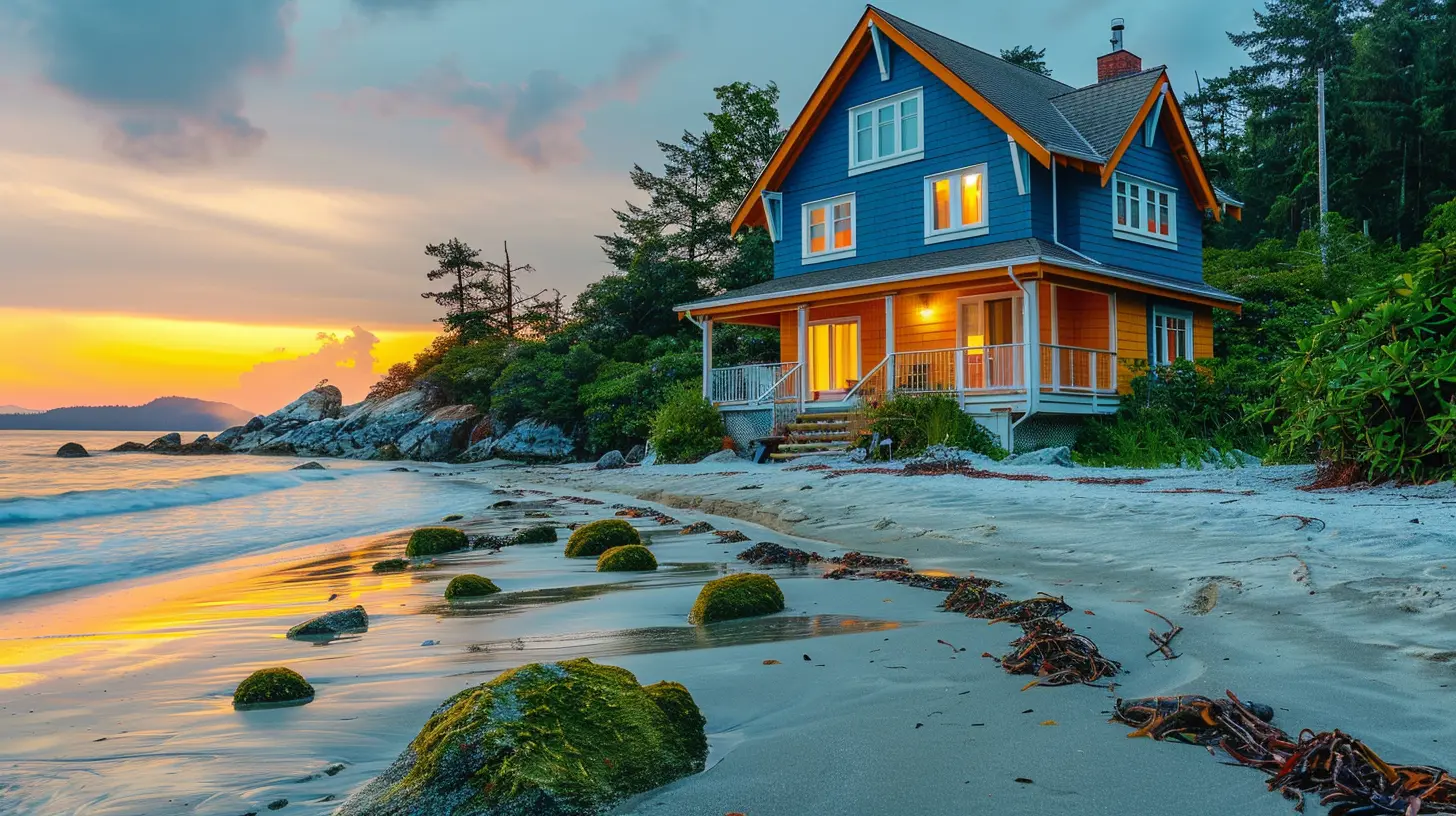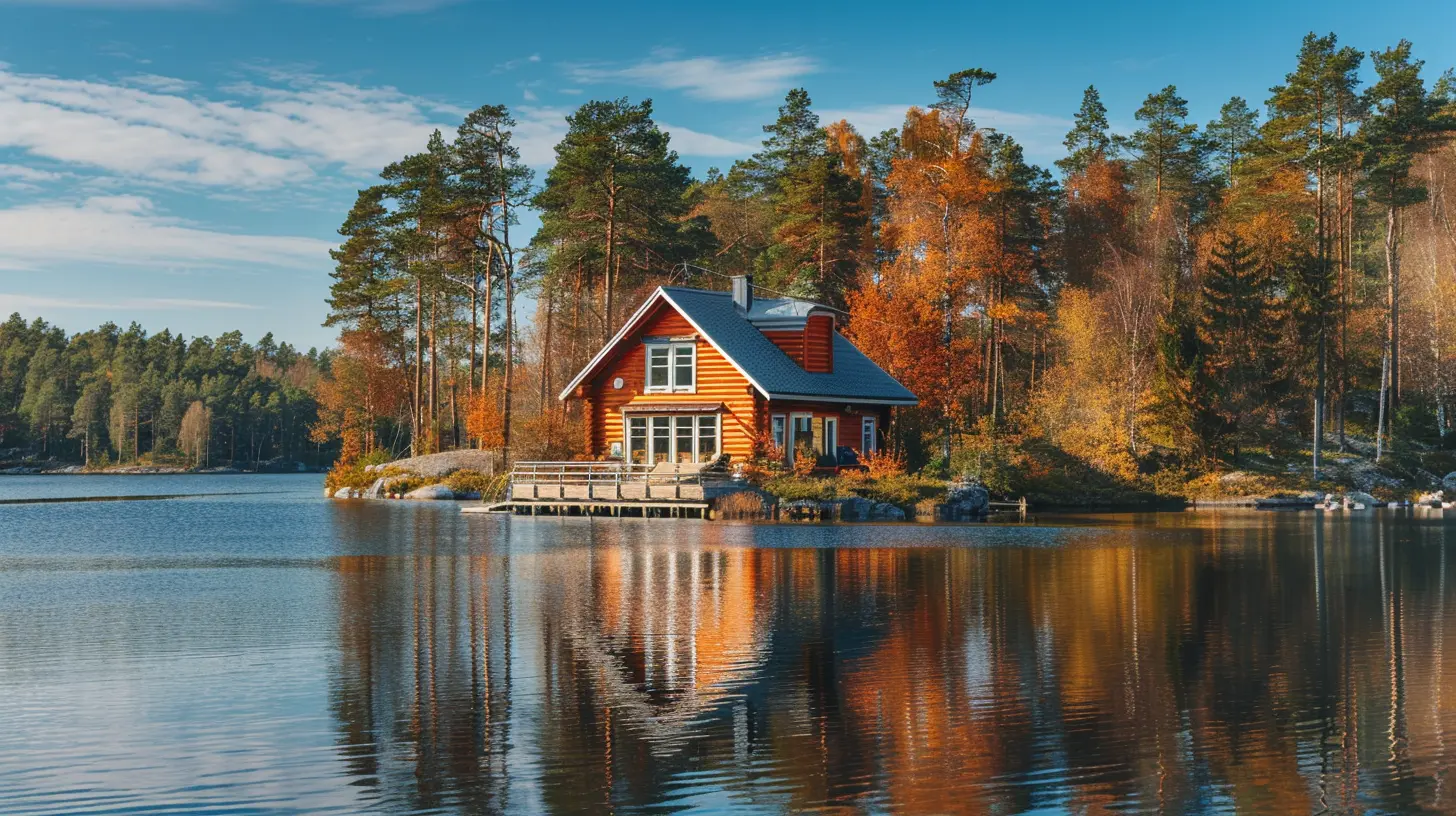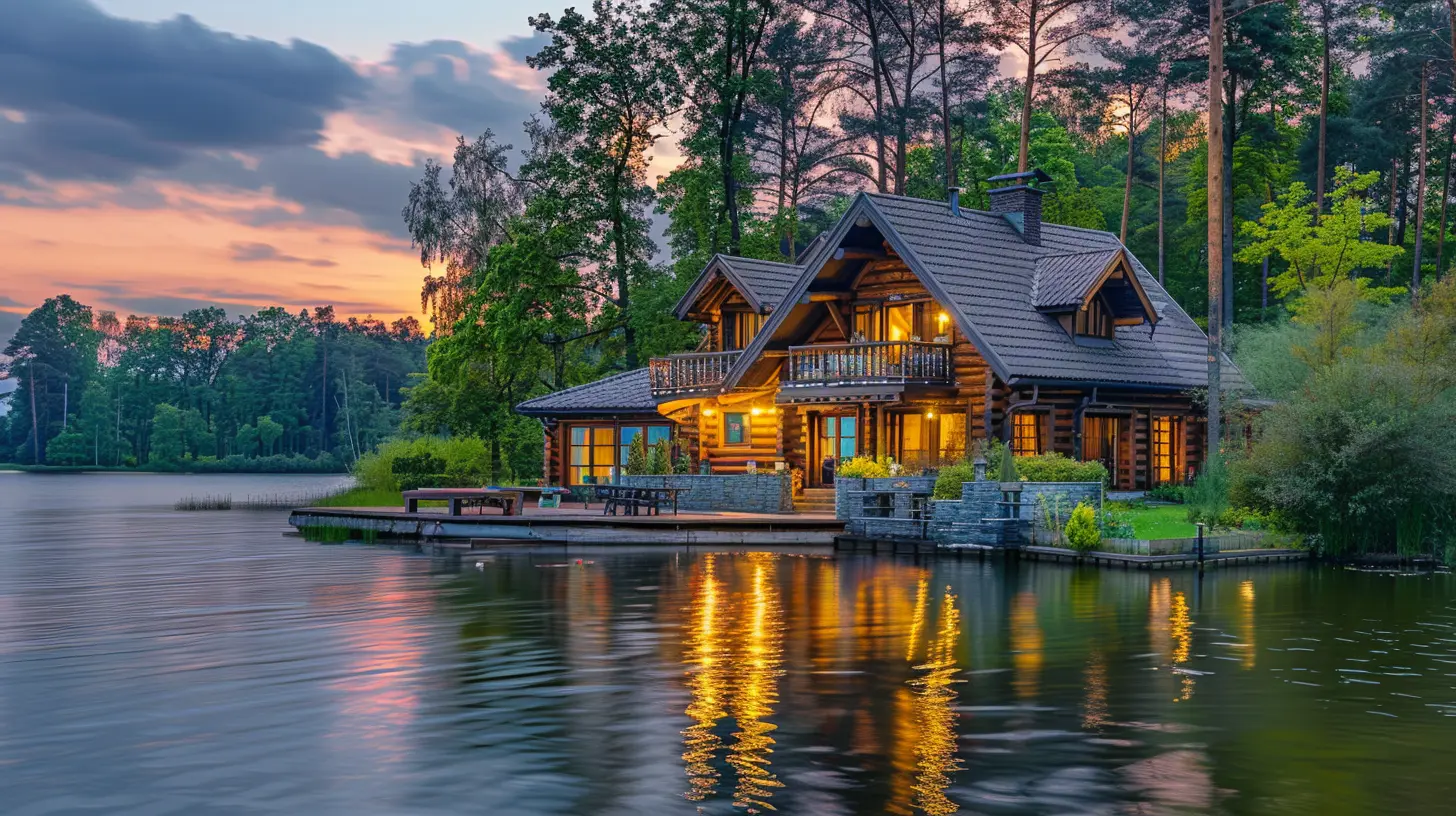Drawbacks of Owning a Vacation Home and How to Overcome Them
11 August 2025
Who wouldn't love the idea of owning a vacation home? A cozy cabin in the woods, a beachfront condo with stunning ocean views, or a peaceful mountain retreat—it all sounds like a dream come true. But before you start picturing yourself sipping margaritas on the balcony, let's talk about the not-so-glamorous side of vacation home ownership.
Owning a vacation home comes with its fair share of drawbacks. However, the good news is that most of these issues have solutions! In this article, we'll go over the common pitfalls of owning a second home and how you can tackle them effectively. 
1. The Financial Burden Can Be Overwhelming
The Problem:
Vacation homes are expensive. Not only do you have to pay for the property itself, but there are also property taxes, insurance, maintenance, utilities, and HOA fees (if applicable). Plus, if you took out a loan to buy it, you’re dealing with an extra mortgage payment.The Solution:
- Rent It Out – Turning your vacation home into a short-term rental when you're not using it can help offset costs. Websites like Airbnb and Vrbo make it easy to find renters.- Share Ownership – Consider co-owning the property with family or friends to split the costs. Just be sure to have a solid agreement in place.
- Choose the Right Location – A vacation home in a high-demand rental area will bring in more income to cover expenses.

2. Maintenance and Upkeep Can Be Time-Consuming
The Problem:
Unlike your primary residence, you won’t be at your vacation home regularly to handle day-to-day maintenance. Problems like leaks, pests, or electrical issues can go unnoticed for long periods, leading to costly repairs.The Solution:
- Hire a Property Manager – A local property manager can take care of cleaning, repairs, and guest management if you rent it out.- Invest in Smart Home Technology – Smart thermostats, security cameras, and leak detectors can help you monitor your property remotely.
- Schedule Regular Visits – If possible, plan routine trips to check on the property and handle maintenance before small issues turn into big ones.

3. Limited Usability and Changing Travel Preferences
The Problem:
At first, the idea of going to the same vacation spot every year sounds great. But after a while, you might start craving new experiences. Plus, life happens—your work schedule changes, kids grow up, and your dream vacation spot may not always be practical.The Solution:
- Rent It Out When You’re Not Using It – This way, your property isn’t sitting empty, and you’re still getting value from it.- Home Swapping – Platforms like HomeExchange allow you to swap homes with someone else for a different vacation experience.
- Sell If Necessary – If your vacation home no longer fits your lifestyle, don’t be afraid to sell and reinvest in something that does.

4. Market Fluctuations and Resale Challenges
The Problem:
Real estate markets fluctuate, and there’s no guarantee your vacation home will appreciate in value. If the market takes a downturn, selling might not be easy—or profitable.The Solution:
- Think Long-Term – Vacation homes should be a long-term investment rather than a quick flip.- Buy in a Desirable Location – Properties in high-demand areas with strong tourism appeal tend to hold their value better.
- Consider Renting Until the Market Improves – If you’re not getting a good offer, renting out the property while waiting for market conditions to improve is a smart move.
5. Property Management Headaches
The Problem:
If you plan to rent out your vacation home, you’ll have to deal with managing bookings, cleaning, maintaining the property, and handling guest complaints. This can quickly turn into a second job.The Solution:
- Use a Rental Management Service – Companies like Vacasa, Evolve, and Airbnb management services can take care of everything for you—for a fee, of course.- Automate Where Possible – Self-check-in with smart locks, automated messaging for guests, and scheduled cleanings can save you a lot of time and stress.
6. Seasonal Demand Fluctuations
The Problem:
Many vacation home locations are seasonal. A beach house might be packed in the summer but empty in the winter. A ski cabin might be great in the winter but slow in the summer. This means inconsistent rental income.The Solution:
- Offer Off-Season Discounts and Promotions – Lowering rates during off-peak seasons can attract budget-conscious travelers.- Diversify Your Rental Strategy – Market your property as a great year-round getaway for different types of travelers.
- Find Alternative Uses – Consider using your vacation home for corporate retreats, remote work stays, or long-term rentals to keep income flowing year-round.
7. Legal and Tax Complications
The Problem:
Owning a vacation home means dealing with local zoning laws, rental regulations, and tax implications. Some areas have strict short-term rental rules, and managing taxes on rental income can be overwhelming.The Solution:
- Hire a Tax Professional – A CPA who specializes in vacation rental properties can help you navigate tax deductions and filing requirements.- Understand Local Laws – Before buying, research zoning laws and rental regulations to avoid surprises.
- Consider Setting Up an LLC – If you plan to rent out your property, owning it through an LLC can offer legal and financial protection.
8. Emotional Attachment Can Cloud Judgment
The Problem:
A vacation home is often purchased with emotions rather than logic. You might fall in love with a place but overlook financial or practical considerations.The Solution:
- Treat It Like an Investment – Approach the purchase with a clear budget and financial analysis.- Get an Inspection and Appraisal – A thorough inspection helps avoid unexpected repair costs.
- Keep Resale Value in Mind – Choose a property that will appeal to future buyers, not just your personal tastes.
Final Thoughts
Owning a vacation home isn’t all sunsets and s’mores. There are real challenges that come with it, from financial burdens to unexpected maintenance issues. But with the right strategies—like renting it out, investing in smart technology, and hiring property management—you can turn your vacation home into a smart and worthwhile investment.At the end of the day, owning a vacation home is about balance. If you go in with realistic expectations and a solid plan, you can enjoy your slice of paradise without breaking the bank or losing sleep. So, is a vacation home right for you? Only you can decide, but hopefully, now you can make that choice with both eyes open!
all images in this post were generated using AI tools
Category:
Vacation HomesAuthor:

Travis Lozano
Discussion
rate this article
1 comments
Zealot Parker
While owning a vacation home offers allure, drawbacks like maintenance costs, fluctuating demand, and potential rental challenges can be significant. Address these by budgeting wisely, hiring property management, and prioritizing locations with consistent appeal to ensure a rewarding investment experience.
August 19, 2025 at 3:49 AM

Travis Lozano
Thank you for your insights! It's crucial for potential vacation home owners to weigh both the allure and challenges, and your practical solutions are valuable for navigating the investment landscape.


